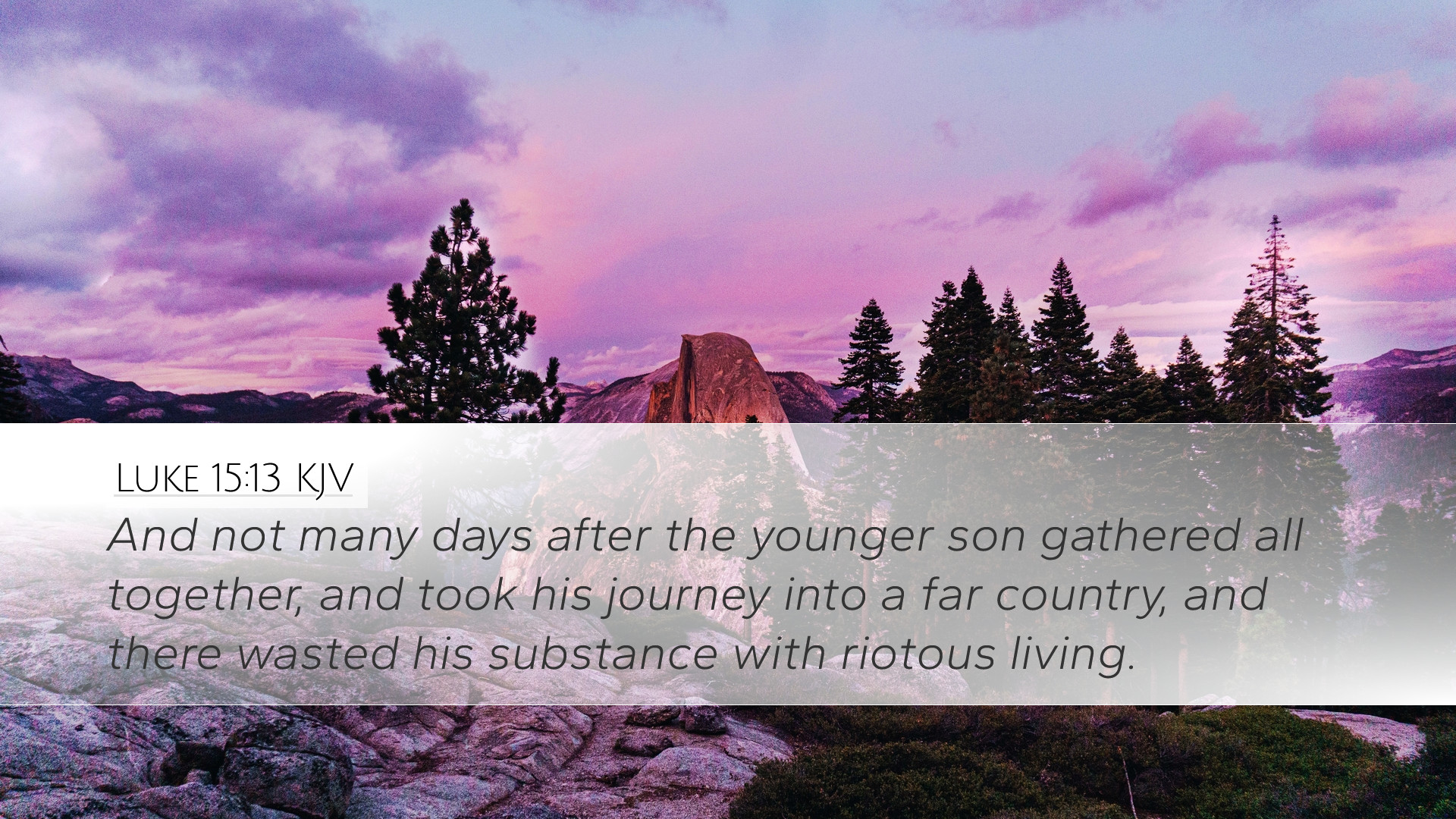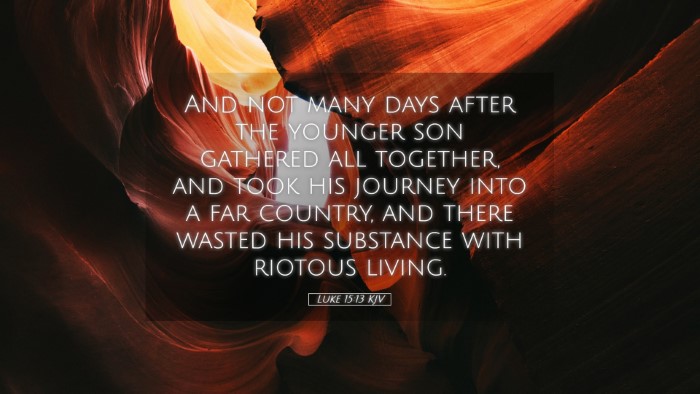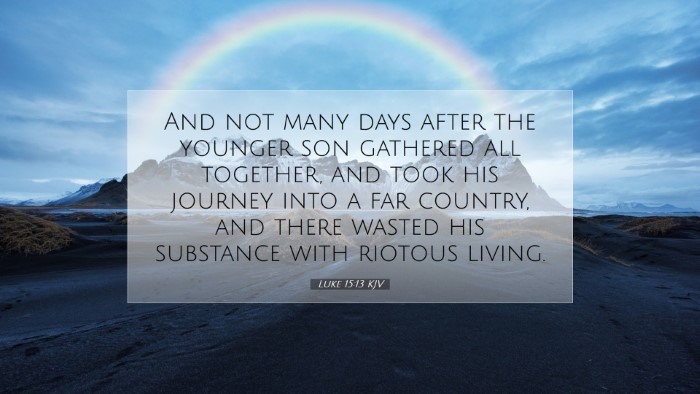Commentary on Luke 15:13
Luke 15:13 states: “Not many days after, the younger son gathered all together, and took his journey into a far country, and there wasted his substance with riotous living.”
Introduction
This verse marks a pivotal moment in the parable of the Prodigal Son, one of the most profound illustrations of grace and redemption in the New Testament. The journey of the younger son serves as a rich metaphor for human nature, temptation, and divine forgiveness. In examining this verse, insights from public domain commentaries help illuminate deeper meanings.
Gathering All Together
The phrase "gathered all together" signifies a moment of finality in the young man's decision to leave his home. Matthew Henry remarks that this denotes a complete departure from his father's house, illustrating the rejection of familial bonds and responsibility. The son evidently desired not just financial independence but also the freedom to indulge in a lifestyle contrary to his upbringing.
-
Albert Barnes emphasizes the impulsiveness of youth by noting that the young man acted hastily, a common trait among those eager to experience life without restraint. His decision reflects a longing for autonomy that often disregards wisdom.
-
Adam Clarke adds that the act of gathering implies a readiness to embark on a new life. This metaphor resonates with those who seek to experience the world’s allure, often isolating themselves from their roots for the sake of fleeting pleasure.
The Journey into a Far Country
The phrase "took his journey into a far country" symbolizes a distance—not only geographically but also spiritually. Henry suggests that the “far country” represents the allure of sin, where the temptations of the world can lead one astray from moral principles. This distance also implies a severance from familial and divine oversight.
-
Barnes points out that the young man's choice to travel far reflects a desire to escape constraints. This action is often emblematic of a youthful yearning for freedom that can lead to adverse consequences.
-
Clarke notes that the physical distance mirrors a spiritual departure from God. As the son drifts away, it signifies a loss of direction, where individuals may seek fulfillment in worldly pleasures, unaware of the impending emptiness.
Wasting His Substance with Riotous Living
The latter part of the verse, "and there wasted his substance with riotous living," captures the essence of the younger son’s choices. The term "riotous living" encompasses indulgent and reckless behavior. Unpacking this, we can glean various theological perspectives.
-
Matthew Henry interprets "wasted" as a forceful term, suggesting that such extravagant living not only squanders material wealth but also spiritual potential. The loss is not solely financial; it involves a depletion of virtue and identity.
-
In alignment with this, Barnes asserts that riotous living leads to a decline in moral character. It embodies the consequences of yielding to temptation, a cautionary tale for all who consider pursuing worldly desires at the cost of righteousness.
-
Clarke elaborates by stating that riotous living can encompass various vices—drunkenness, promiscuity, and hedonism—all of which contribute to the son’s downfall. Each indulgence pulls him further into a spiral of despair and regret.
Theological Implications
The narrative of the Prodigal Son speaks profoundly to the human experience, particularly emphasizing the themes of sin, separation, and eventual reconciliation.
-
The choice of the younger son to abandon his father's house reflects a rebellion that many can relate to. In modern faith discussions, it serves as a reminder of the consequences of straying from God.
-
Furthermore, this parable exemplifies God's unwavering grace. Despite the son’s reckless choices, the eventual return to the father symbolizes hope for redemption and restoration, regardless of how far one has wandered.
Conclusion
Luke 15:13 invites deep contemplation on the nature of sin and the transformative power of grace. The insights from commentaries by Henry, Barnes, and Clarke challenge readers—pastors, theologians, and students—to reflect on their spiritual journeys, the temptations they face, and the boundless love of God that awaits them upon their return. This verse remains a profound testament to the realities of human estrangement and the joyous reconciliation offered through Christ.


